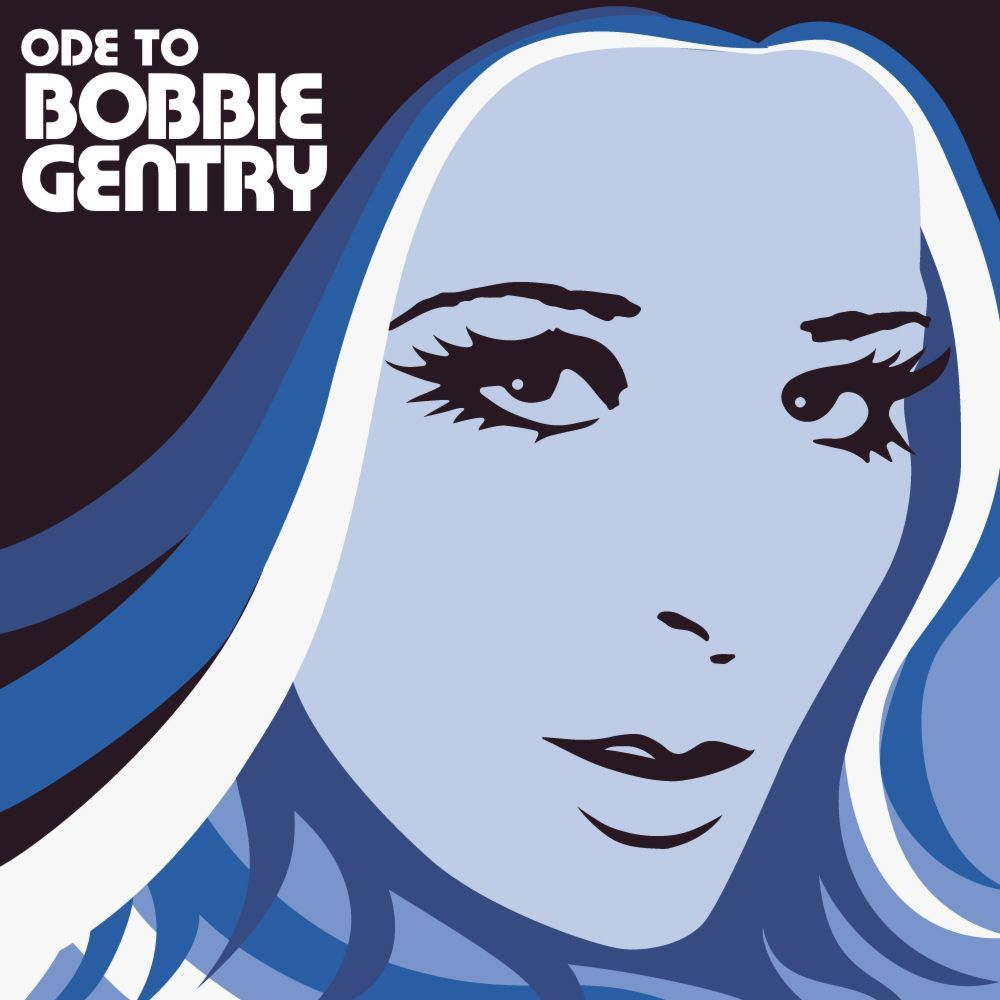So, this compilation winds up following compiler Dean Rudland's whims, which means it emphasizes material that plays up her pop and soul sides, including covers of "You've Made Me So Very Happy," "Son of a Preacher Man," "In the Ghetto," "I'll Never Fall in Love Again," and "Big Boss Man." This may not be the most unique of Gentry's work, even if it still bears her unique vocal style, and given the lack of compilations on the market, it's hard not to wish that these were left behind for some original work. Still, Ode to Bobbie Gentry has considerable merit, particularly in light of Raven's subsequent An American Quilt compilation. Where that disc focused on her quirkier material -- exactly the songs missing from here -- this is pitched at the mainstream that she most certainly played a part in during her peak. So, even though there's overlap with the Raven title, Ode to Bobbie Gentry certainly has its own character, one that's lighter and fluffier, but still quite appealing; for those who like the sound of Gentry's records, this is the preferable introduction (those who want her riskier material should turn to An American Quilt), but most listeners will need both. ~ Stephen Thomas Erlewine
Ode to Bobbie Gentry: The Capitol Years
Bobbie Gentry

EMI/Zonophone's 2000 release Ode to Bobbie Gentry: The Capitol Years was the first CD-era compilation to make a serious attempt at summarizing Bobbie Gentry's remarkable recordings for Capitol during the late '60s and early '70s. Gentry didn't quite fit into any category. She was a singer/songwriter with a strong talent for folk narratives, but she had a husky, sexy voice and a predilection for blues and R&B. Her productions were slick and bright, perfect for AM pop radio, but she was pitched in a country direction. She wound up having success in many of these markets -- most notably with the Grammy-winning number one single "Ode to Billy Joe" -- but her music got increasingly idiosyncratic and her sales got increasingly smaller. Years later, her legacy seemed down to "Ode to Billy Joe," particularly since her Capitol catalog wasn't widely available, but Ode to Bobbie Gentry went a long way to restoring that reputation. It's not perfect by any means, however. It has a weird duality in that it favors her pop side yet leaves off many of her American chart singles: "Okolona River Bottom Band," "Louisiana Man," "Mornin' Glory," and the Glen Campbell duets "Let It Be Me" and "All I Have to Do Is Dream" are all missing. Yet it also tends to bypass stark, eerie mood pieces like "Casket Vignette" that are at the core of her cult legend in some quarters, since these prove how deeply her work could cut.
Tracks
1
Mississippi Delta
03:06
2
Fancy
04:15
3
Son of a Preacher Man
02:06
4
Ode to Billy Joe
04:14
5
Touch 'Em With Love
02:03
6
You've Made Me So Very Happy
03:19
7
The Girl From Cincinatti
03:32
8
In the Ghetto
02:48
9
Hushabye Mountain
02:50
10
I Wouldn't Be Surprised
03:24
11
Apartment 21
03:21
12
He Made a Woman Out of Me
02:33
13
Find 'Em, Fool 'Em, Forget About 'Em
02:39
14
Skip Along Sam
02:40
15
Show Off
02:43
16
I'll Never Fall in Love Again
02:52
17
Stormy
03:29
18
Chickasaw County Girl
02:34
19
Big Boss Man
03:01
20
Ace Insurance Man
03:32
21
Reunion
02:36